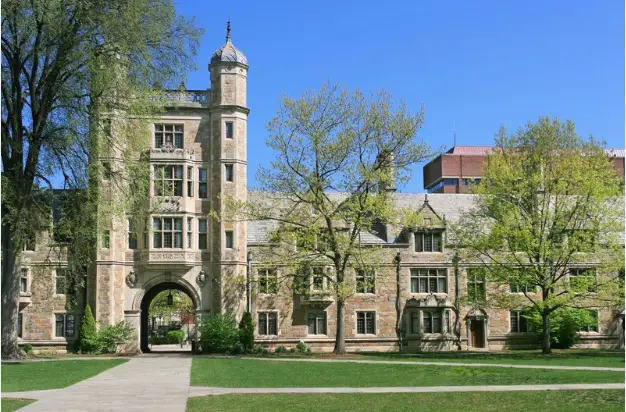Ferdinand Berthier: A Pioneer in Deaf Education and Advocacy

Ferdinand Berthier was a significant figure in 19th-century France, known for his remarkable contributions as a deaf educator, advocate, and writer. Born in 1803 in Louhans, France, Berthier lost his hearing early but did not let this define his limitations. He attended the Institut National des Jeunes Sourds in Paris, where he was profoundly influenced by renowned educators such as Abbé Sicard and Jean Massieu, and later became a professor at the same institution.
Ferdinand Berthier’s Role in Deaf Education
Ferdinand Berthier’s career as an educator was driven by his deep commitment to the rights and education of deaf individuals. He believed strongly in the importance of sign language and fought against the increasing influence of oralism (the method of teaching deaf students to communicate through speech and lip-reading).
His advocacy extended to writing articles and books emphasizing that deaf students could thrive if educated in their native sign language. One of his most prominent works, Mémoires d’un Sourd-Muet (Memoirs of a Deaf-Mute), provides a valuable autobiographical account of his life and struggles as a deaf individual in the 19th century. Through this, Berthier shed light on the challenges faced by the deaf community during that time.
Advocacy and Formation of Deaf Organizations
Berthier’s influence stretched beyond education. He took bold steps in advocating for the rights and unity of the deaf community. In 1834, he established the Société Centrale des Sourds-Muets (Central Society for the Deaf and Mute).
This organization created a platform for deaf individuals to unite, share experiences, and advocate for their collective rights. Berthier also organized annual Deaf-Mute Banquets, which became popular gatherings for the deaf community, fostering solidarity and promoting cultural expression.
These events featured speeches, performances in sign language, and discussions on topics such as education and employment for deaf people. The banquets were not only a source of cultural pride but also a platform for advocating for the use of sign language and the broader rights of people who are deaf or hard of hearing.
Literary Contributions
Apart from his advocacy and teaching roles, Berthier was a prolific writer, contributing numerous essays, articles, and books that focused on the history, culture, and education of people who are deaf or hard of hearing. He wrote extensively about his mentors, including a biographical work on Abbé Sicard, and published research on prominent deaf figures, artists, and poets.
His works are significant for giving the world a glimpse into the vibrant cultural and intellectual lives of deaf individuals and challenging many misconceptions about deafness that prevailed at the time.
Honors and International Influence
Ferdinand Berthier’s contributions did not go unnoticed. In 1849, he became the first deaf individual to receive the prestigious Legion of Honor in France, a testament to his tireless advocacy and efforts in advancing the rights of the deaf community.
His influence was not limited to France—his writings and efforts inspired similar movements in other parts of the world, playing a vital role in the global recognition of deaf education and culture. His legacy continues to inspire the fight for equality and accessibility for deaf individuals.
Legacy
Berthier’s impact on the world of deaf education remains profound. He pioneered the movement to establish sign language as the primary mode of instruction for deaf individuals, paving the way for future generations of deaf educators and advocates.
His belief that the deaf community had a distinct and valuable culture—centered on sign language—was revolutionary at a time when the world was moving towards oralism. Today, many deaf education systems worldwide incorporate sign language as a fundamental component of their curricula, a practice rooted in Berthier’s advocacy.
Conclusion
Ferdinand Berthier’s work in education, advocacy, and literature made him a pioneer in the deaf community and a symbol of resilience. His dedication to improving the lives of deaf individuals, both in France and around the world, helped create a lasting foundation for recognizing sign language and the rights of people who are deaf or hard of hearing.
Through his teachings, writings, and activism, Berthier’s legacy inspires future generations to fight for the rights and education of the deaf community. You can also know about Alyxandra Beatris Brown by going through that blog.
FAQs
What was Ferdinand Berthier’s primary contribution to the deaf community?
Ferdinand Berthier is best known for his role as a deaf educator and advocate. He fought to recognize sign language and established organizations like the Société Centrale des Sourds-Muets to promote unity and rights for people who are deaf or hard of hearing.
Why is Berthier’s advocacy for sign language significant?
At a time when oralism was gaining popularity, Berthier stood firm in his belief that sign language was essential for the education and communication of deaf individuals. His work helped preserve and promote the use of sign language in education.
What is the Deaf-Mute Banquet, and why was it necessary?
The Deaf-Mute Banquet was an annual event organized by Berthier that brought deaf individuals together to celebrate their culture and advocate for their rights. It played a key role in building solidarity and raising awareness about the deaf community.
How did Ferdinand Berthier’s writings influence the deaf community?
Berthier’s writings provided insight into the deaf experience and challenged misconceptions about deafness. His books and articles served as powerful tools for advocating for the rights of deaf individuals and promoting the use of sign language.





